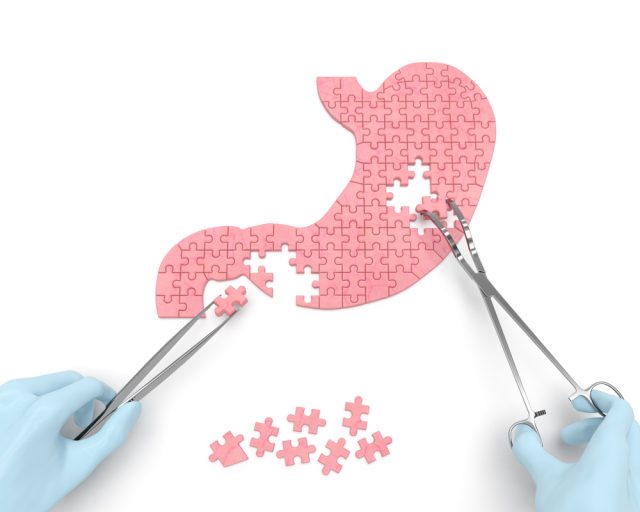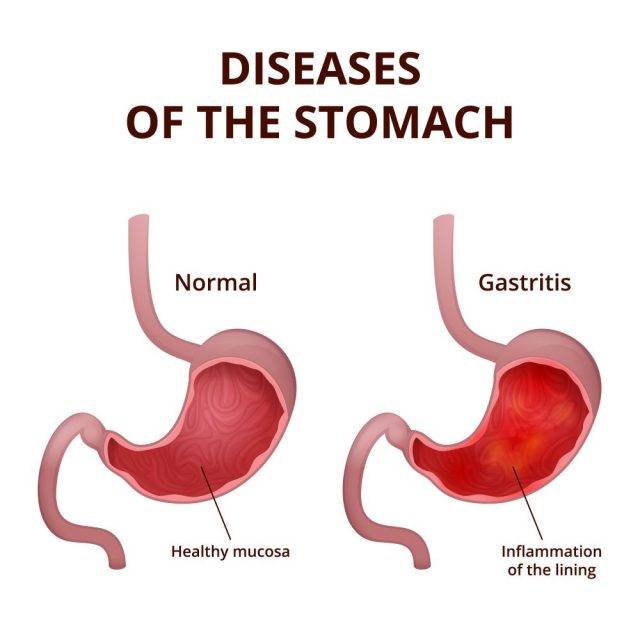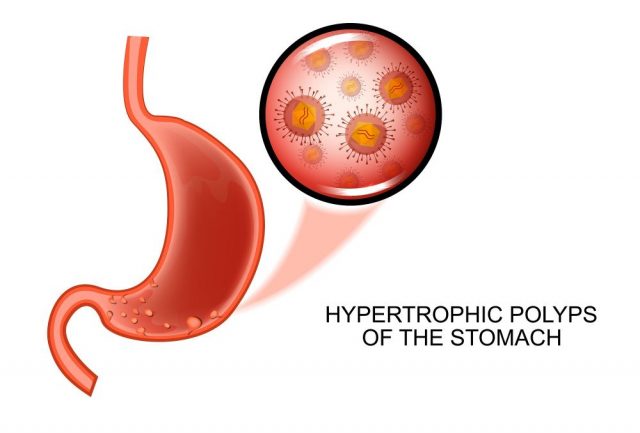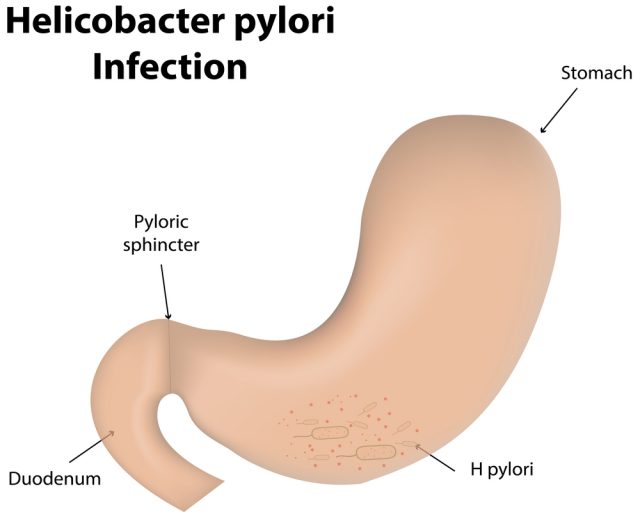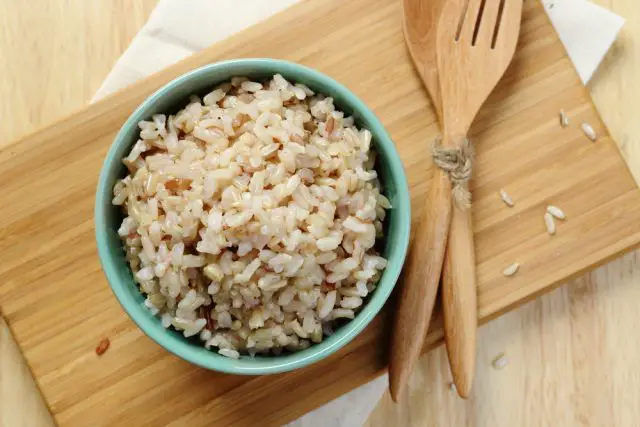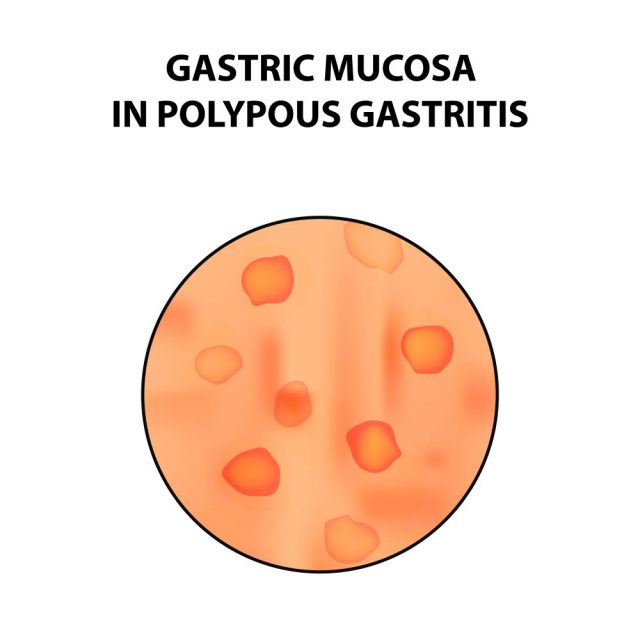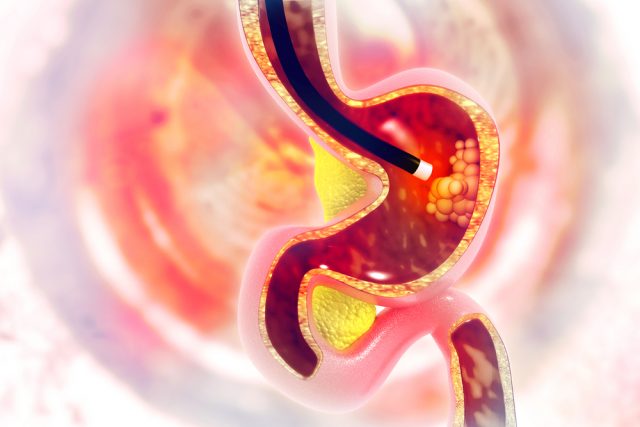Stomach Polyps
Introduction
Stomach polyps, or gastric polyps, are the result of cell masses coming together and forming on the lining within your stomach. Usually, these kinds of polyps are not common and don’t cause any symptoms. In fact, they are usually discovered when the doctor is examining a patient for other reasons.
Most of the time, stomach polyps cancer is rare, and they are considered benign. However, even stomach polyps are benign they can increase the risk of cancer, so it’s important that once discovered, you seek treatment for the polyp or polyps, even going so far as to have them removed.
Symptoms of Stomach Polyps
Usually, stomach polyps don’t cause any kind of signs, and often go undetected. However, as the polyp continues to grow, it can develop ulcers, or open sores, on the surface, which will cause symptoms. Very rarely, a polyp could block the opening of small intestine from the stomach, which requires medical intervention.
Symptoms of a stomach polyp include nausea, tenderness or pain when you press on your abdomen, on your abdomen, blood in the stool, and/or anemia (when there aren’t enough healthy red blood cells to carry oxygen to bodily tissues).
If symptoms persist, and especially if you continue to see blood in your stool, see your doctor or medical professional.
Causes of Stomach Polyps
There are a few different causes of stomach polyps in general, though all form due to damage in the lining of your stomach. Common causes include chronic stomach inflammation, familial adenomatous polyposis, and regular use of stomach medications. There are also a few risk factors that can contribute to the development of stomach polyps.
Chronic Stomach Inflammation
Known as gastritis, chronic inflammation of the stomach can cause hyperplastic polyps or adenomas to form. Hyperplastic polyps, when small, are very less likely to become cancerous, though those bigger than a centimeter have a bigger risk than stomach polyps benign. Usually, these are just monitored instead of removed, and are only removed if they become cancerous or large enough to become cancerous. Adenomas are very rare forms of stomach polyps, but really increase the changes of cancer, and are typically removed through endoscopy.
Familial Adenomatous Polyposis
Familial adenomatous polyposis is a rare syndrome that is passed down in families. It causes cells in the stomach’s inner lining to form a type of polyp – the fundic gland polyps. Associated with this syndrome, they are usually removed as it is possible for them to become cancerous. In addition to fundic gland polyps, familiar adenomatous polyposis can cause adenomas.
Stomach Medication Use
Fundic gland polyps not caused by familiar adenomatous polyposis can instead be caused by regular proton pump inhibitor users. This type of medication is used to reduce the amount of stomach acid, so stomach polyps and acid reflux can go hand in hand if you are not careful about your medication usage. Fundic gland polyps are usually small and are monitored rather than removed, but polyps larger than one centimeter may be cause for concern as they carry a larger cancer risk, albeit still a small one in comparison to other types of polyps. Your doctor may want to remove the polyp or discontinue your usage of stomach medication or do take both the actions.
Risk Factors associated with Stomach Polyps
There are a variety of risk factors that may increase the risk of developing the different types of stomach polyps. In addition to the correlation between stomach polyps and stress, risk factors include the following:
- Certain Medication Usage: As mentioned above, proton pump inhibitors can increase your risk for stomach polyps, specifically for fundic gland polyps.
- Bacterial Infection in stomach: H. pylori is a kind of bacteria that often cause gastritis, which can contribute to the risk for both adenomas and hyperplastic polyps.
 Stomach polyps and gastritis have been linked.
Stomach polyps and gastritis have been linked. - Familial Adenomatous Polyposis: A rare syndrome inherited down family lines, it includes increased risk for colon cancer, polyps, and noncancerous tumors called desmoids tumors.
- Age: Stomach polyps have been found to be more common in older adults.
Stomach Polyps Diet
Stomach Polyps Food to Avoid
If you are at risk for stomach polyps or currently have stomach polyps, foods to avoid include a lot of things found daily in our diet. Fatty red meat, whole dairy, fried foods, and processed foods in general are not easy to digest, which can result in more stomach acid being produced and can cause irritation of the stomach lining. In addition, carbonated beverages and beverages with a lot of caffeine should also be limited. Instead of high-fat content food, consider replacing with fish, poultry (baked), low-fat dairy, and olive oil. Excess alcohol can also irritate your stomach, as well as citric acid from soda and fruit juice. You should avoid altogether or limit the amount of citric and high acid fruits, like oranges and grapefruit, as well as pickled vegetables as they may increase the risk of stomach cancer
Stomach Polyps Food to Eat
Different fruits and vegetables have a variety of health benefits. Fiber is important to healthy bacteria in the digestive tract, while antioxidants work to neutralize cell growth in the stomach. Berries, apples, greens that are leafy, bell peppers, and squash all help maintain healthy digestive tracts. According to Cleveland Clinic, you should include at least 5 servings of fruits and veggies in your diet every day.
In addition, whole grains are rich in fiber and b-vitamins, which help promote digestive function that is normal, along with beans. Choosing wheat bread, wheat pasta, bran cereals, barley products, and brown rice instead of the more common refined white grains (which contain less fiber and less nutrients as it is more processed) can promote better digestive health. Good sources of fiber with less acidity include black, kidney, and navy beans.
There is limited evidence that a home remedy for stomach polyps using apple cider vinegar is effective. However, all polyps should be examined by a doctor so that they can be determined malignant (cancerous) or benign.
Treatment for Stomach Polyps
To diagnose polyps, you will have to undergo an endoscopy. This is a common procedure, where a doctor puts a scope down your throat to view your stomach while you are unconscious. During the endoscopy, they may take biopsies of any polyps or other unusual growths that they find, which can then be analyzed in a laboratory to determine the kind of polyp and whether they are cancerous or benign.
Small Polyps (Not Adenomas)
Polyps that are smaller than a centimeter may not require intervention or removal. Instead, they may be monitored occasionally, as they typically show no signs and only very rarely get cancerous – for the most part, they are benign. If they should grow, or if they begin to cause symptoms, doctors may recommend removing the polyp.
Large Polyps
Polyps larger than one centimeter may need be removed due to symptoms or because of the increased risk for stomach cancer.
Adenomas
This type of polyp is usually removed, as it has the most risk for becoming cancerous.
Familial Adenomatous Polyposis
Polyps associated with this syndrome are usually removed due to the increased risk for cancer.
Pylori Infection
Gastritis due the H. pylori bacterial infection can increase your risk of hyperplastic polyps. As a result, your doctor may treat the infection with antibiotics, which can actually cause hyperplastic polyps to disappear, and keep them from recurring afterwards. Typically, treating H. pylori include 10 days or 2 weeks of one or two antibiotics, which can include tetracycline, metronidazole, amoxicillin, or clarithromycin. In addition, your doctor may also prescribe ranitidine, bismuth, or a proton pump inhibitor to help manage your symptoms.
Polyp Removal through Endoscopy
Polyps can usually be removed through an endoscopy, which is a nonsurgical procedure that uses an endoscope to look at your digestive tract. An endoscope is a flexible tube with a light and camera attached, and can be easily passed through the throat and into the esophagus, which allows the doctor to look at the stomach, the esophagus, and upper small intestine to find out if you have polyps, ulcers, or other issues. A biopsy can be performed with an endoscopy, and polyps can also be removed as items can pass through the endoscope.
There are a few risks involved in this overall safe procedure, including perforation or tear in the wall of the gut, reaction to the sedation, infection, or bleeding. Usually, endoscopies are performed by gastroenterology specialists, or gastroenterologists, but can be performed by surgeons as well. To prepare for an endoscopy, you will be given instructions, which usually include fasting and arranging a driver as you will be sedated. Usually the procedure is done in less than an hour, but in some cases general anesthesia may be given for children and special circumstances.
Conclusion
Usually stomach polyps are benign and go completely undetected. It is only in certain cases that they become a problem or become cancerous, such as in the case of adenomas or Familial Adenomatous Polyposis. There are various ways that you can work to prevent or treat stomach polyps, including diet, medication, and removal of polyps, but ultimately they should not be an issue for most people as they are considered rare. The various risk factors, including stress, should be considered when diagnosing the stomach polyps, and a biopsy should be done via endoscopy to determine the type of polyp and whether it is cancerous or benign. The process of removing a polyp is safe and low-risk.

